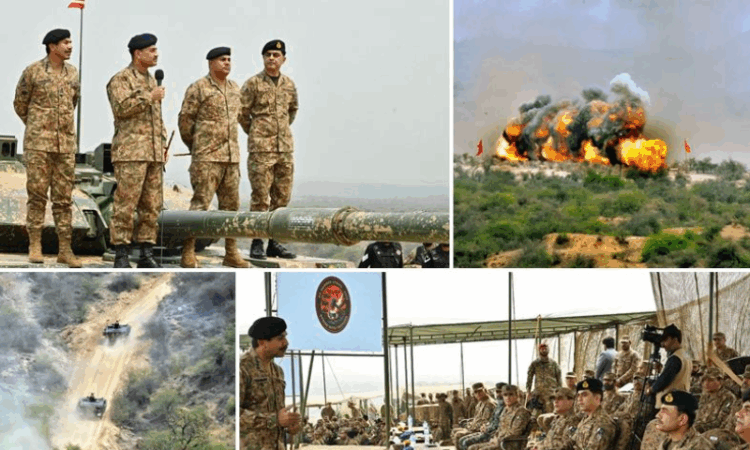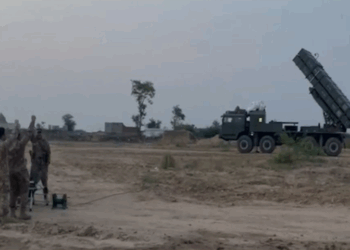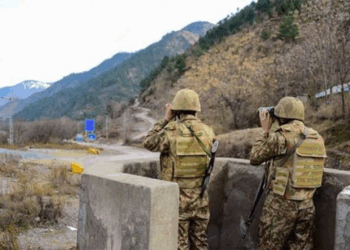Rawalpindi, May 1, 2025: Chief of Army Staff (COAS) General Syed Asim Munir on Thursday observed the Pakistan Army’s high-intensity field exercise Hammer Strike at the Tilla Field Firing Ranges (TFFR), where elite formations demonstrated full-spectrum combat readiness amid escalating tensions with India.
According to the Inter-Services Public Relations (ISPR), the large-scale exercise was led by the Mangla Strike Corps and aimed at validating operational preparedness, integration of advanced weapon systems, and doctrinal evolution under near-battlefield conditions. General Munir’s presence at the frontlines served as a clear signal of the military’s strategic intent and its resolve to deter any aggression.
During his visit, General Munir closely reviewed the live-fire drills, which involved multirole fighter aircraft, combat aviation assets, long-range precision artillery, and cutting-edge field engineering techniques. He witnessed synchronized offensive maneuvers conducted by troops from various arms and services, demonstrating high-level coordination, speed, and lethality.
In a forceful statement delivered on-site, General Munir praised the troops’ professionalism and unwavering spirit, describing them as “the embodiment of operational excellence.” He reiterated the Pakistan Army’s absolute commitment to safeguarding the country’s territorial integrity:
“Let there be no ambiguity: any military misadventure by India will be met with a swift, resolute, and notch-up response. While Pakistan remains committed to regional peace, our preparedness and resolve to protect national interests is absolute.”
His remarks came in the wake of rising border hostilities. Just a day earlier, Pakistan reportedly launched retaliatory strikes against Indian positions along the Line of Control (LoC) following unprovoked small-arms fire in the Kiani and Mandal sectors. Officials confirmed that enemy positions, including the Chakputra post in Indian Illegally Occupied Jammu and Kashmir (IIOJK), were effectively neutralized.
The military’s show of strength was further emphasized by the participation of senior commanders and dignitaries from all branches of the armed forces. ISPR noted that the exercise is part of the Pakistan Army’s continuous transformation—focusing on technological advancement, combat innovation, and doctrinal refinement.
General Munir’s visit comes at a critical juncture, following the April 22 terrorist attack in Pahalgam, India, which killed 26 tourists. India blamed Pakistan without presenting public evidence. The incident triggered a rapid diplomatic breakdown: New Delhi suspended the Indus Waters Treaty, revoked visas for Pakistanis, and closed the Wagah-Attari border. Islamabad responded by expelling Indian diplomats, suspending visa issuance for Indian citizens (excluding Sikh pilgrims), and closing the crossing from its side.
Pakistan has strongly denied involvement in the Pahalgam attack and has offered to cooperate in a transparent investigation. Military sources affirm that the Army remains fully alert and prepared to respond to any further provocation with decisive force.
The Hammer Strike exercise, highlighted by General Munir’s direct engagement, underlines Pakistan’s message to both domestic and international observers: its armed forces remain vigilant, capable, and fully committed to national defense.







